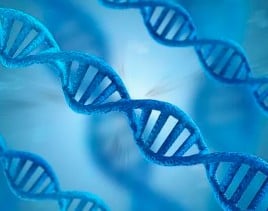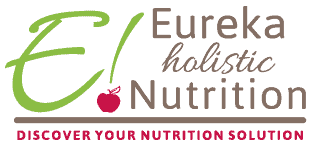Nutrient deficiencies and weight loss, what’s the connection?

Usually people think “eat less and move more” is the formula to lose weight. That’s an outdated, flawed model and it should be replaced with “eat more and move more”. Why? Because when we eat less and we have nutrient deficiencies present, we’re giving our body the message of scarcity. And that says, we better hold onto things. We better store things. But when we eat more and we nourish our bodies, we don’t have nutrient deficiencies present, that gives our body the message of abundance. And it says, you have permission to release the excess. When we do that, the long term results of weight loss are possible.
Nutrient deficiencies as a root cause for weight loss resistance is a powerful concept that we teach in our coaching program. Let’s look at four big ideas that we’re going to cover in this article series:
- What are the top five nutrient thieves? Why are there nutrient deficiencies?
- What’s the nutrient deficient and weight loss resistance connection?
- Re-nourish to release the weight concept – Eat more. Move more.
- What should we expect to be the results of re-nourishing?
#1 BIG IDEA: Top Five Nutrient Thieves
Healthy food is whole nutrients. When we talk about nutrients, we’re talking about six different ones. Four macro and two micro – Four macro nutrients meaning larger are:
- Water
- Carbohydrates- starch & sugars
- Proteins- amino acids
- Fats- fatty acids
And then micronutrients are your:
- Vitamins
- Minerals
When we talk about nutrient deficiencies, we’re talking about these six different categories of nutrition. And when a food is really nutrient-dense and a food is healthy, then that just simply means it has a high nutrient value. These six each have a different role in the body. And they each break down into different substances that we use to make energy and all kinds of functions in the body with water being the regulator of all of these nutrients.
Without water, nothing else works.

How prevalent are nutrient deficiencies, especially in the United States?
In a recent study conducted by the National Health Institute Examination Survey that indicates U.S. children and adults have high rates of deficiencies of specific vitamins and even the mineral iron. In this study, the nutrient intake data is expressed as a percentage:
- 61% of adults and 90% of teens don’t get enough magnesium.
- 95% of adults and 98% of teens don’t have adequate vitamin D.
- 32% have insufficient vitamin B6 intake.
- 23% have at least one to five vitamin deficiencies
The bottom line is nearly 31% of the whole entire U.S. population is at risk for at least one micronutrient deficiency. Forget the amino acids and the fatty acids and everything else. We’re just looking at the smaller micronutrients. This research was done back in 2018.
Fast forward, those numbers are probably even worse.
So what are the nutritional data for food? Why do we have these nutrient deficiencies? A quick look at the data on nutrition for food reveals that our nutrient value has drastically declined.
There’s a landmark study done on the University of Texas back in 2004. It was published in the Journal of American College of Nutrition. So they studied U.S. Department of Agricultural and Nutritional Data from the 1950 to 1999, so almost 50 years, of 43 different fruits and vegetables, finding very reliable declines in the amount of protein, calcium, phosphorus, iron, riboflavin, vitamin C over the past half century.
The Organic Consumers Association cites several other studies, and those findings are very similar.
Kushi Institute, analysis of nutrient data from 1975 to 1997, found the average calcium levels in 12 fresh fruits and vegetables dropped 27%, iron levels dropped 37%, vitamin A levels 21%, and vitamin C levels 30%.
In a similar study, British nutrient data from 1930 to 1980, published in the British Food Journal, also found that 20 vegetables, the average calcium content had declined 19%, iron 22%, potassium 14%. So you see the whole concept of the food our grandparents ate is not the same food that we eat today.
So why are all these nutrient deficiencies happening?
#1 Depleted Soil – If you follow Eureka! very long, we’ve talked a lot about the ground or the soil. That’s a Biblical and science based approach to nutrition, because out of the ground, God made man. Out of the ground, God made plants to grow. Out of the ground, God made animals. The physical life source is the ground – The nutrients in the ground, the microorganisms in the ground, the pH of the ground, the soil.

When I first started studying nutrition, I thought organic was a bunch of hype. I remember thinking, if I just wash my fruit off, I would probably be fine. What I learned was it’s all about the soil. It’s the soil nutrition, pH, microorganisms etc.
Organic is so important because it maintains the integrity and the nutrition of the soil. Modern commercial farming methods means what should be in the soil isn’t really there, and what shouldn’t be in the soil isn’t taken out.
- Erosion
- Lack of crop rotation
- Mass production strategies
- Use of pesticides, chemicals, fertilizers
- Genetically modifying with artificial vitamin C, artificial calcium earning the label, but the function in the body isn’t the same.
When it comes to animal foods… As long as the meat is fed, the good quality plants and the grass-fed beef and the pasture-raised poultry, is fed on good soil and from nutrient dense plant-based foods, then the meat is healthy.
It’s what the meat is eating. As long as we’re eating high nutrient-dense, organically grown, or at least chemical-free, local as much as possible from local farmers, then we’re getting the nutrition that should be there.
#2 Poor Diet – The second nutrient thief is a poor diet. Ironically, we’re well fed and undernourished. We have high calories, but low nutrition. The food we feed our kids in schools, the food that we can get so fast and convenient on the road, the food that at social events or even at church events, is just so nutrient deficient. And when we continue that path, over time, health and weight issues result.

The Environmental Working Group puts together a Dirty Dozen/Clean Fifteen list every year of produce that is the most heavily sprayed and should be bought organic. Sometimes even buying organic that’s shipped from thousands of miles away from Chile is not as nutrient-dense as buying something local right from your farmer’s market down the street that’s chemical-free. Sourcing high nutrient-dense pasture-raised meats, wild-caught fish, and good healthy natural fats like coconut oil and olive oil and avocado oil; those are the things that we should be putting in our bodies that give our bodies that message of abundance.
And it takes much less whole foods that are high nutrient-dense than it does processed foods to fill up and keep us satiated. Plus, we are giving our bodies the fuel it needs to function: create energy, detoxify, signal hormones.
#3 Poor Absorption – “We are what we eat” is really not entirely true. It’s really more “we are what we absorb.” Making sure our bodies can actually use the nutrients that we’re putting in our bodies is a key piece to resolving deficiencies. We work with clients in both of those capacities – One is making sure they get the nutrition, but two, making sure their digestive system is optimally functioning so they can absorb those nutrients.
There’s three main pieces to absorption:
- Upper GI – Stomach acid & enzymes – enough are needed at the right pH
- Mid GI, your intestinal lining is intact enough that it can absorb food particles broken down at the right size and don’t enter into the bloodstream too large and create a inflammatory response. – that’s when you get food sensitivities and allergies and this whole leaky gut condition.
- Lower GI, the right balance of microbes, (the microbiome) can help finish utilizing nutrients, build more nutrients, and detox the body!
If someone is really struggling with their weight, the microbiome and the GI tract and how their body uses food for fuel is one of the main pieces that we really work to customize a plan for people that are enrolled in our weight loss Coaching Program.
#4 Medications – There are certain medications that deplete specific nutrients, like statins are infamous for depleting the nutrient CoQ10. That’s really important for heart health and it’s anti-inflammatory, antioxidant.

Check out our resource by subscribing to our Mastery Monday Newsletters – we share a list of medications and their corresponding nutrient deficiencies. Sometimes people have to be on medication, we get that. But what nutrients are you missing because of it? That allows people to supplement their diet or eat more of the nutrient-containing foods that their medication depletes.
And so by doing that, you need to jump on our website, EurekaHolisticNutrition.com and subscribe to our newsletter, our mailing newsletter. That’s where we share the most valuable resources we have, very practical resources with our audience.
#5 Genetics – There can be different messaging between our DNA that can inhibits from absorbing and utilizing certain nutrients. MTHFR is probably the most commonly researched enzyme gene mutation related to nutrient deficiencies, especially B vitamins and methylation that hinders the use of B Vitamins and folate specifically causing high potentially high homocysteine levels and hormone detox issues to arise.

Knowing those genetic code is helpful, but just know, underneath the genetics is another science called epigenetics, which says, which genes do we express? Which genes do we turn on? Which genes do we turn off? By making really good choices in the food and nutrition area, we are helping our body to utilize everything else. Then also, we can know that supplementation is very important and which one’s very targeted, which supplements should we be taking. The only way you know the nutrigenomics is to get tested. Again, are depleted soil, poor diet, poor absorption, medications, and genetics.
Check out our next article in this series on the direct connection between nutrient deficiencies and weight loss resistance!
